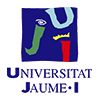Careers in Localization
16 / 11 / 2015
Fuente: www.gala-global.org

The localization and language services market is approaching $40 billion and is growing at a rate of more than 7% annually. It is the fourth-fastest growing industry in the USA and is highly ranked for start-up opportunities.
These figures represent a thriving industry with excellent career prospects. If you are interested in langauges, cultures, technology development, or global business, now is the time to start a career in the localization and language industry.
The career paths available in this field are many and varied, ranging from the obvious, such as translators and interpreters, to the lesser known, such as games localization engineers.
If creativity is your strength, there's a career for you in transcreation. If engineering is your métier, there’s a career for you in language technology development or localization engineering. If you excel at juggling multiple priorities and staying organized, there’s a career for you in project management.
Below, we summarize a few select roles specific to the localization and language industry. ADAPT (formerly the Centre for Next Generation Localisation) has also developed an excellent careers guide for prospective students and employees. The important thing to remember is this: the localization and language industry is growing fast and needs people from just about every business function — from marketing and accounting to project management and technology development.
Translator
A translator converts words and meaning from one language to another. It's not just about translating a document or website word for word; the translator's job is to convey the original tone and intention of the message, taking into account cultural differences. The reader must believe the words were written in their native language.
Translators work with written words and software. They translate marketing materials, annual reports, instruction manuals, software and online content. Translators must have native fluency in two or more languages. More and more, translators are working with computers and software to translate more efficiently and consistently. Many translators work as freelancers, but some are employed as in-house employees.
Interpreter
An interpreter works with the spoken word, conveying a message spoken in one language to listeners in a different language. Like translators, interpreters must convey the style and tone of the speaker as well as their meaning, and this often takes place in real-time (live). Interpreters, therefore, must be quick thinkers and able to handle pressure. Many interpreters work as freelancers or independent contractors.
Project Manager
A project manager in the localization and language industry manages localization projects from start to finish. This involves managing quotes and workflow, ensuring agreed-upon standards and specifications are met, ensuring the project is on budget and meets its deadline, as well as managing the various professionals involved in the project, including translators, localization engineers, quality assurance staff, and others. The project manager also liaises with the client to keep them involved and up to date.
Project managers must be organized, good problem solvers, and have excellent people management as well as customer relations skills.
Software Testing and Quality Assurance (QA) Professional
The quality assurance professional's role is to ensure that any localized product — be it a website, a game, a computer program or marketing materials — works as well in the new language as it does in the original language. They check to be sure standards and specific requirements are met and they oversee the testing process. Working in the localization and language industry, quality assurance professionals have an understanding of different testing tools and methodologies.
Attention to detail and precision are a must for a quality assurance professional.
Software Localization Engineer
A software localization engineer oversees the process by which translation meets localization. Put simply, he or she takes apart all of the elements of the product that have to be localized (first making sure they can be localized) then puts them back together again once they are localized.
The software localization engineer prepares a localization toolkit for translators, which includes all the files and instructions for translation. Once the translation is done, the engineer builds the newly localized product so that it is ready for testing. The localization engineer is responsible for fixing any bugs found during testing.
Software localization engineers have a technical role combining knowledge of programming languages, development environments, user interface design guidelines, localization and translation tools as well as language and translation issues.












